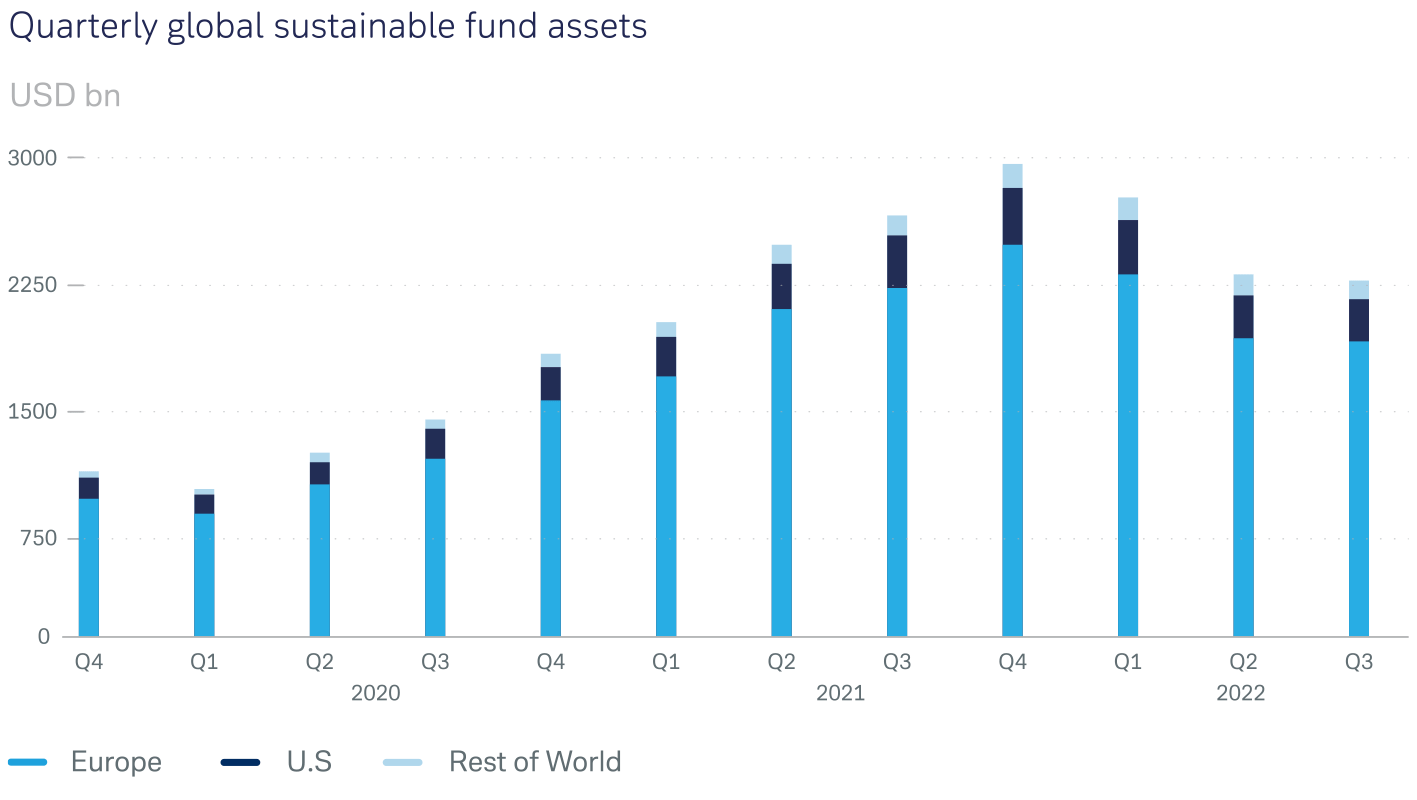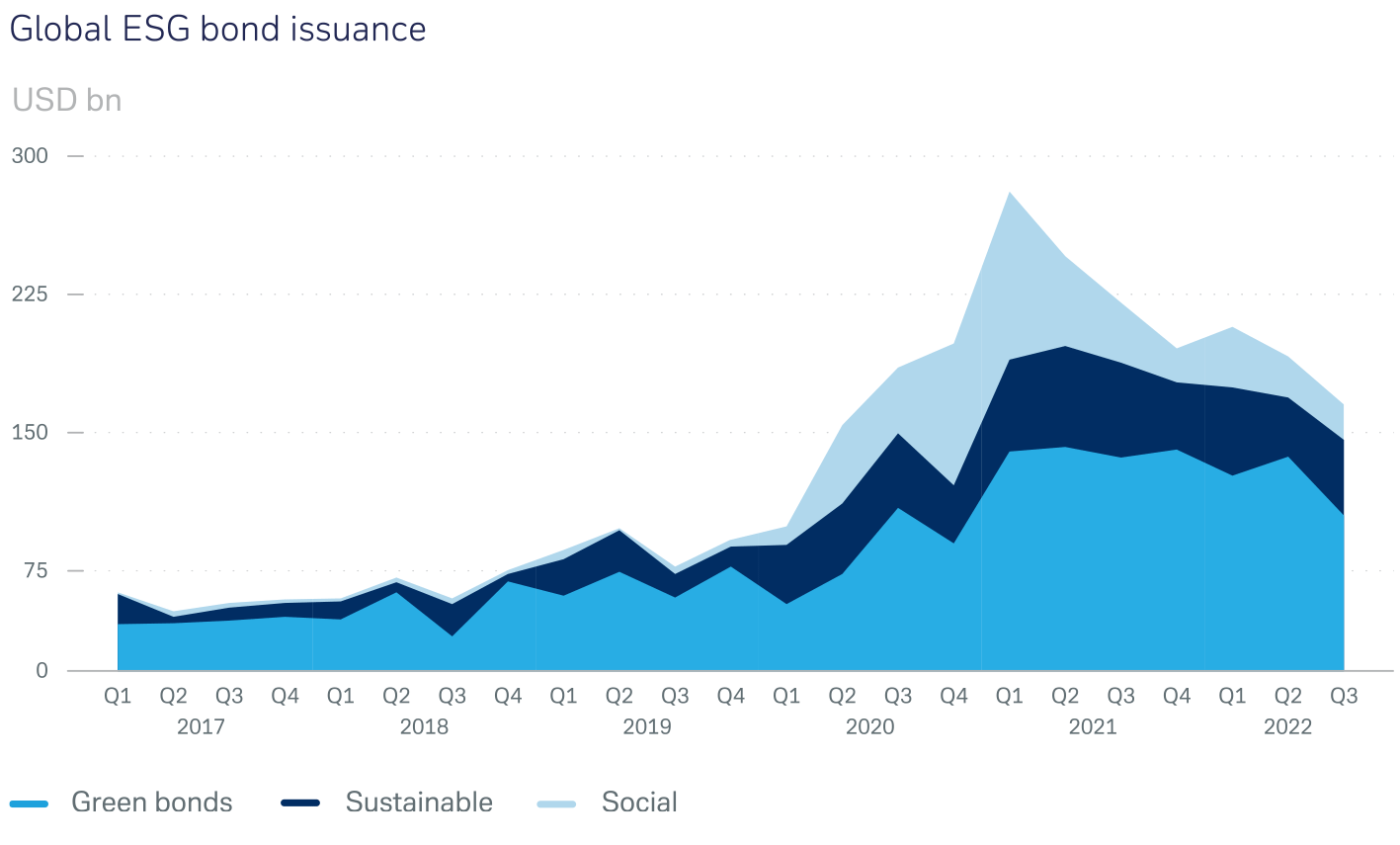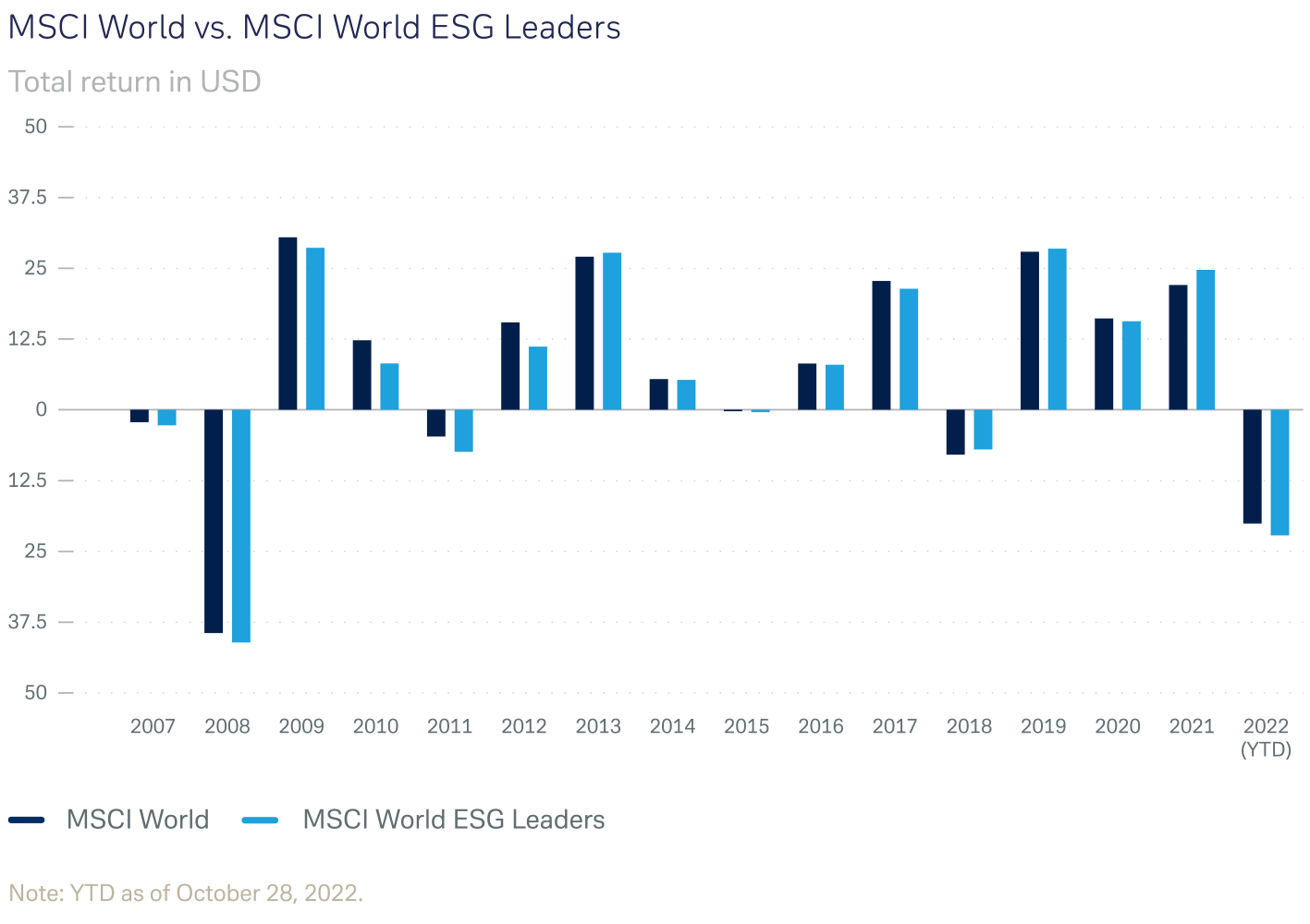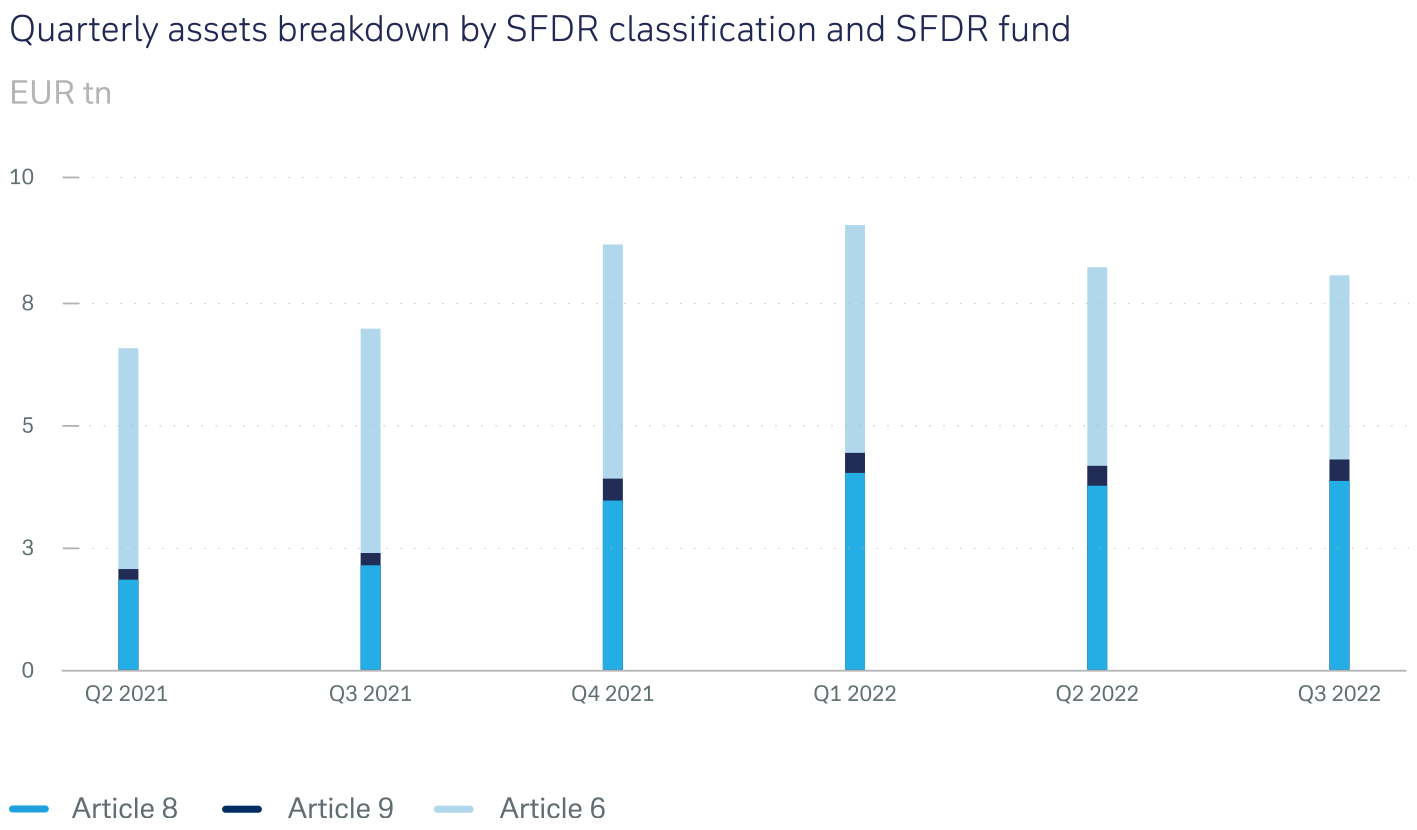Introduction
In 2021, we conducted our first survey of our clients’ attitudes towards ESG. We wanted to understand their views on the role of ESG in portfolios and the relative importance of different ESG issues to them. We also identified some variations in attitudes between different age groups and male and female respondents.
This year we received 849 responses, down on the 2,130 responses last year, probably due in part to the much extended length and depth of the survey. Within Europe, however, this year’s responses were much more evenly distributed. This has reduced last year’s marked overweight to Spain and Italy, with the benefit of a more representative weighting for German clients.
In this year's survey we asked almost twice as many questions, with the aim of getting a more complete view of our private, institutional and business clients’ attitudes to ESG. In this year’s survey we focus additionally on issues such as respondents’ knowledge of underlying ESG concepts, biodiversity issues and nature-related risks, and investor confidence in the abilities of financial institutions in regards of different ESG related issues.
We have also tried to highlight any broad changes in our clients’ attitudes towards ESG investment between 2021 and 2022. This has been a period of continued ESG development and growth in most (but not all) types of ESG assets under management (Figure 1). Over the last year, however, ESG investment has also experienced a number of headwinds, both around methods and performance, and this has encouraged a much-needed debate about what exactly ESG should be. We now appear to have moved from awareness and then rapid growth in ESG investment to a new third phase of ESG development characterised by a degree of consolidation and reorientation – and, potentially, changed expectations around ESG’s impact on performance and risk management. Investors are becoming increasingly conscious of the details around ESG investment performance – both in terms of financial returns and “real world returns” (i.e. positive effects on the world around us). Moreover, ESG is getting more and more attention as an additional form of risk management in a rapidly changing world.
We summarise ten key findings from the survey in the section below. Five of these findings highlight key areas in comparison with last year’s survey results, showing ongoing trends and confirming some existing beliefs across different areas. The other five findings are new.
Key survey findings
2022 update vs. 2021
- Investors confirm their commitment to ESG. Some 78% of our investors slightly or strongly agree in this year’s survey that their investments should have a positive impact on the world, slightly up on last year’s 75%.
- Environmental issues remain the top priority. Across all the different survey respondents' age groups and amongst both women and men, “E” is regarded as the ESG pillar deserving the highest level of attention. 50% of investors regard environmental issues (“E”) as the most important pillar in ESG investment, up from 46% last year. 28% put governance (“G”) at the top of the list this year, similar to last year. The higher priority given to “E” and “G” came at the expense of the “S” pillar. Social issues (“S”) are seen as most important by 23% of investors vs. 27% in 2021.
- Within the “E” pillar, climate change is seen as the most important problem. 53% of respondents regard climate change as the most important factor in investment decision making, up from 47% last year. It is clearly ahead of ocean pollution, land degradation, and biodiversity loss, which were selected respectively by 15%, 21% and 7% of survey respondents. The share of respondents selecting biodiversity loss fell slightly compared to last year (it was 11% in 2021), while the other two areas remained quite stable.
- Concerns about climate change’s economic impact remain high. 78% (vs. 74% in 2021) of survey respondents believe that climate change either is already having a severe negative impact on the global economy, or will have it in the next 10 years if left unchallenged.
- More respondents still agree that ESG can manage risk in a portfolio than disagree. 44% of respondents strongly or slightly agree with this, down only slightly from 48% last year, and higher than the 16% who strongly or slightly disagree. But, with four in ten respondents saying that they don’t know, or neither agree or disagree, many still have to be convinced.
New 2022 findings
- There is moderate optimism that we can manage climate change and biodiversity loss. 51% of investors are either very optimistic or optimistic that humankind will be able to manage climate change through technological innovation; 47% have faith in the power of nature-based solutions.
- Awareness of underlying concepts is accompanied by knowledge shortfalls. Only 18% claim sophisticated or good knowledge of nature-based solutions; the equivalent figure for the concept of natural capital is 20%. Moreover, less than one in five of our respondents had this level of knowledge of the triple planetary crisis.
- Millennials seem to be more aware of underlying ESG issues compared to other age groups. Almost one in four among Millennials say that they have sophisticated knowledge of the concept of a net-zero emissions economy. They are also more knowledgeable and more optimistic about solutions to the triple planetary crisis.
- Biodiversity issues are seen as important for portfolio returns and risks. 41% strongly or slightly agreed that including biodiversity considerations into investment decisions would boost portfolio returns; over 60% thought it would reduce nature-related risks.
- Investors are looking to financial institutions to help manage the transition journey. 68% of investors expect their financial institution to accurately measure and manage nature-related risks; 75% expect appropriate protection of portfolios. But financial institutions can only be one driver – alongside individual investors, corporates and governments – of necessary economic change. Among others, greater investors' knowledge is necessary to achieve this goal.
We look in more detail at the 2022 survey findings in the next section. As it will be discussed, the survey reveals continued investor enthusiasm for ESG as 56% of our clients agree (either strongly or slightly) that ESG will become standard, despite slightly increased scepticism about its portfolio risk management capabilities. There was also (as noted above) some investor optimism that such investments can help us in tackling climate change and biodiversity loss through technological or nature-based solutions. A variety of other issues (e.g. ocean health) may also still be underappreciated and knowledge of some underlying ESG concepts may be limited.
In this year’s survey, we have also gained an important insight into investor expectations towards financial institutions, which can be seen as a result of a shift in overall awareness. As we discuss later, it is evident that many investors expect the financial sector to lead the way in measuring and managing nature-related risks, and protecting portfolios from them, but there is uncertainty whether financial institutions can currently do this. Demonstrating such financial sector capabilities – along with closing investor knowledge gaps – are among the key challenges ahead.
"This has been a period of continued ESG development and growth in most (but not all) types of ESG assets under management"
Figure 1: Key ESG investment financial market statistics
Sources: Morningstar Direct, Refinitiv, Bloomberg, Deutsche Bank AG. Data as of October 2022.








.webp)



